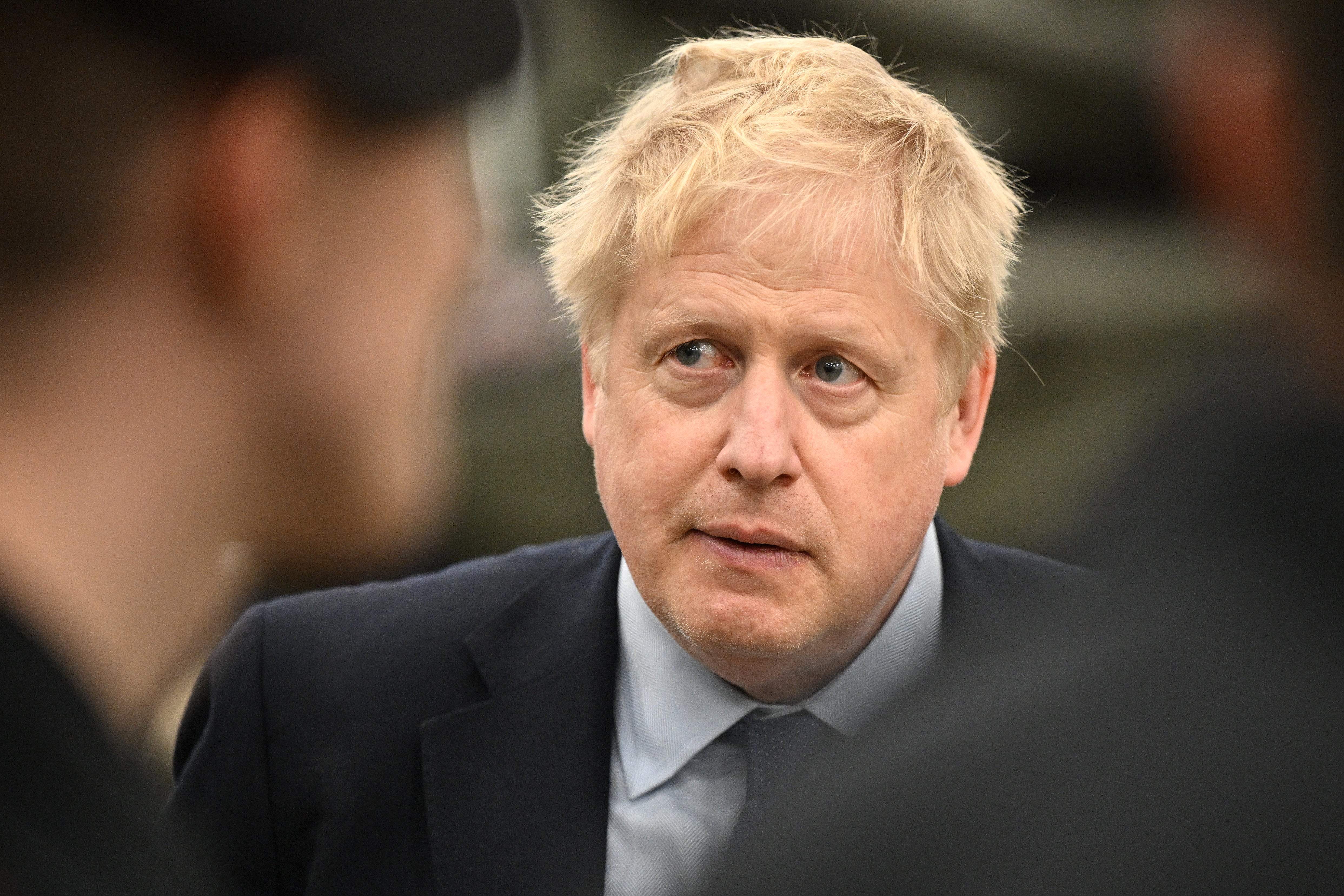The danger to Boris Johnson of saying ‘Putin must fail’: what if he doesn’t?
The prime minister has won support for his leading role in standing with the Ukrainian people, but, asks John Rentoul, what is the plan?


In every disaster there is an opportunity. There spoke Boris Johnson’s authentic voice, in an interview with journalists from three continental newspapers yesterday. He was talking about the chance in this crisis for countries to switch from oil and gas to renewable sources of energy, but he could just as well have meant the chance it gave him to escape his tormentors in the House of Commons.
The invasion of Ukraine has changed the world, and one of its least important effects has been that on British politics, but you can see why it matters to Johnson that his party will probably now allow him to continue to be prime minister for the rest of this year.
He has responded to Vladimir Putin’s aggression with energy and leadership. There has been a clarity and an honesty about his speeches and interviews since the invasion began that has pushed aside some of the criticism of him as a chaotic leader given to mindless optimism.
He didn’t obfuscate, as he might have been expected to, when challenged by a tearful Ukrainian journalist in Warsaw this week about Nato’s failure to impose a no-fly zone over Ukraine. He explained, in a rather un-Churchillian way, why a direct military confrontation between Nato and Russia would be even worse than what is happening now.
In his interview yesterday, he repeated that point, and held back from other invitations to escalate the conflict. He did not think the west should encourage the Russian opposition to revolt against Putin: “We can’t think like that. Events in Moscow or Russian politics are simply unforeseeable. In fact, that would be a total, a total distraction. Let me be very clear: this is not about trying to do anything to shorten the political career of anyone in Moscow.”
Similarly, he was cautious about bringing Putin to justice for war crimes. “I think we must be quite limited in what we’re setting out to do,” he said. This must not be portrayed as a conflict between Putin and the west, he said, but about “helping the Ukrainian people to protect themselves … The minute we start to introduce all sorts of other political considerations in Moscow, or whatever geostrategic considerations, then we lose the sharpness and the focus.”
And he played down the prospect of total economic war when asked if all EU countries should stop buying gas and oil from Russia. That was when he said, “in every disaster there is an opportunity,” but he was talking about “a programme” and “a timetable” to “diversify away from this dependence”. It sounded like something that would happen over at least five years – by which time anything could have happened. Even then, he admitted, “it’s not easy, and our electorates will find it tough”.
So far, and the war is only 10 days old, the British electorate is supportive of the prime minister’s position, and members of the House of Commons, with perhaps a dozen exceptions, are united behind it. What is more, Ukrainians are grateful to Johnson for his leadership.
Volodymyr Zelensky, the Ukrainian president, seems to regard our prime minister as his strongest ally, calling him every day. A remarkable opinion poll carried out, despite the invasion, by Lord Ashcroft this week found that Britain was viewed more favourably than the EU or the US, with 53 per cent of Ukrainians saying the UK was “doing enough to help”.
But the question that the three journalists from Die Welt, La Repubblica and El Pais kept asking in different forms is: what is the plan? “There has to be a way out,” said Johnson, before suggesting that Putin had left himself no good options. The Russian president had “miscalculated” and made a “catastrophic mistake”, but how he or the world was to get out of it remains unclear.
To keep up to speed with all the latest opinions and comment sign up to our free weekly Voices Dispatches newsletter by clicking here
That is why Johnson has fallen back on the idea that “Putin must fail”. Indeed, he went further in his interview yesterday, saying: “I think there is a sense in which he has already failed.” It is possible that the Russian economy and government collapses quickly, and its military withdraws from Ukraine, but it seems more likely that a wounded and desperate Putin fights on. In which case “Putin must fail” is not much of a guide to action.
If the war drags on, UK public opinion may change. It is worth remembering that the Kosovo war in 1999, a short, relatively cost-free conflict in which the Nato action to save the ethnic Albanian population from Slobodan Milosevic was supported by British voters, produced no electoral dividend for Tony Blair, despite his notable role in persuading a reluctant US president and a fractious alliance to make good on an ultimatum to the Serbian dictator.
The invasion of Ukraine has saved Johnson, but it may threaten him later: rising gas prices, a refugee crisis and the unforeseeable consequences of the collapse of the Russian economy may turn out to be a disaster in which not even he can find an opportunity.
Join our commenting forum
Join thought-provoking conversations, follow other Independent readers and see their replies
Comments
Bookmark popover
Removed from bookmarks